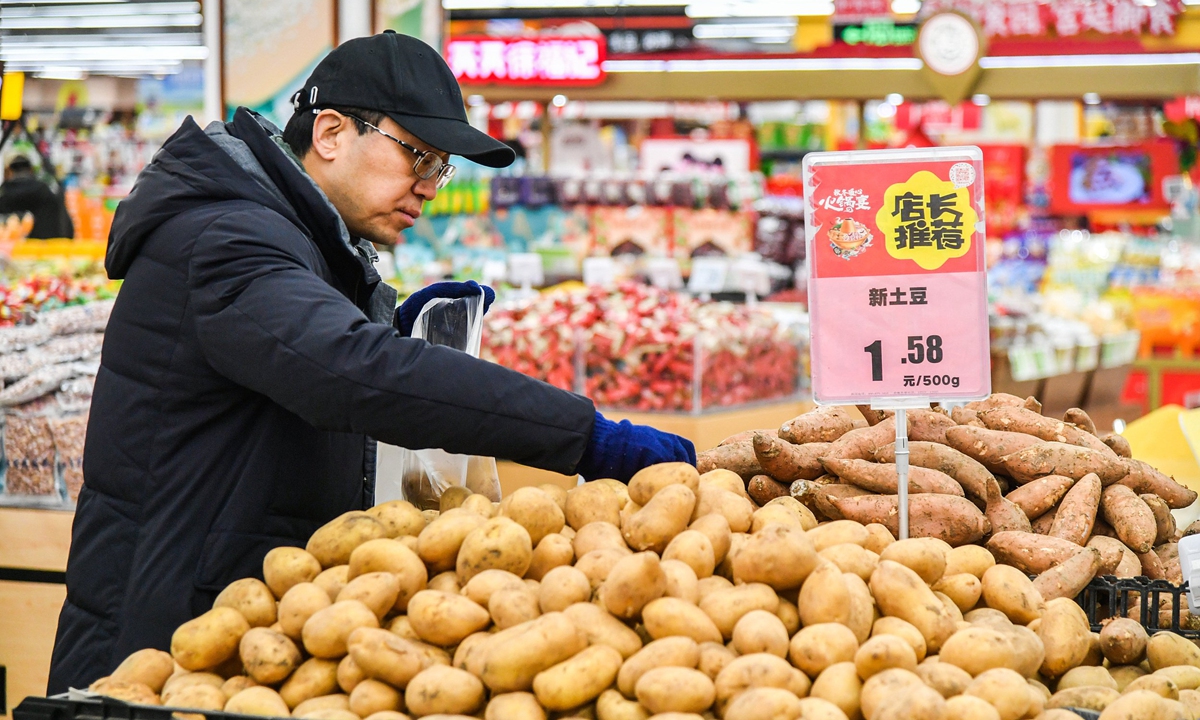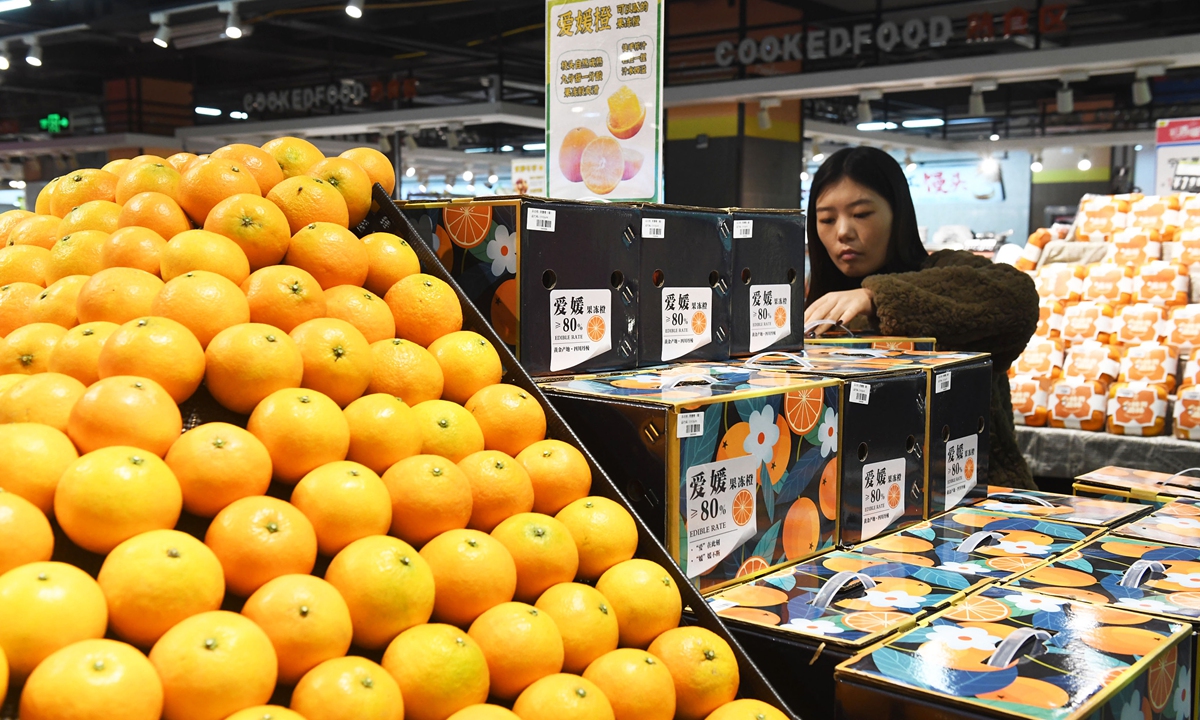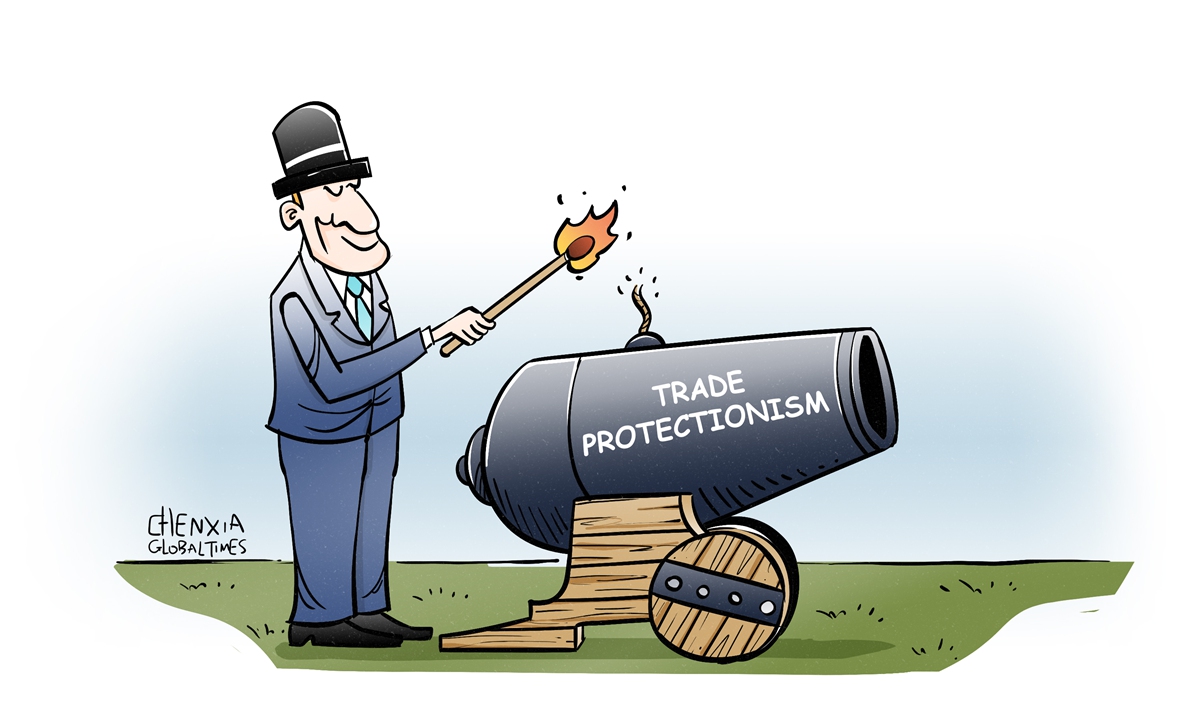
Photo: VCG
China's 2023 consumer price index (CPI), the main gauge of inflation, increased 0.2 percent on a yearly basis, the National Bureau of Statistics (NBS) reported on Friday.
Experts noted that the recent data strongly refute the alleged risk of deflation in China. With the continuous recovery of the country's domestic consumer market, China's economy will maintain stable development into 2024.
"The country's CPI for the whole year indicated a relatively stable level of overall consumer prices, thanks to the supply and demand balance with supporting policies," Wang Peng, an associate researcher from the Beijing Academy of Social Sciences, told the Global Times on Friday.
The country targeted its inflation rate, or increase in CPI, of around 3 percent for 2023, according to a government work report in March 2023.
Wang noted that it also refutes foreign media's claims of the so-called deflation risk that China could face.
Deflation is mainly defined as persistent negative price growth and a downward trend in the money supply, and is usually accompanied by a recession.
"However, prices in China are still rising moderately and economic performance continues to improve, which is not consistent with the characteristics of deflation," Wang said.
In 2023, China issued a total of 22.75 trillion yuan ($3.17 trillion) in new loans, according to data released by the central bank on Friday, which shows the country's stable support for real economy. In December, China's M2 money supply reached 292.27 trillion yuan, up 9.7 percent year-on-year, underscoring the country's abundant liquidity.
In December, the CPI increased 0.1 percent from a month earlier, due to falling temperatures and increased consumption demand ahead of the holidays, the NBS said.
On a year-on-year basis, the CPI in December declined by 0.3 percent, narrowing the rate of decline by 0.2 percentage points from November. Pork prices fell by 26.1 percent, the main factor driving the year-on-year decline in the CPI, the NBS said on Friday.
Food prices in December rose 0.9 percent month-on-month from a decline of 0.9 percent in the previous month. With rain, snow and cold weather affecting production, storage and transportation of fresh and live agricultural products, coupled with increased pre-holiday consumer demand, prices of fresh vegetables, fruits and aquatic products increased, driving up December's food prices, according to the NBS statistician Dong Lijuan.
Core CPI, which excludes food and energy prices, increased by 0.6 percent year-on-year, maintaining a stable trajectory, the same as the previous month, Dong said.
Demand for travel, entertainment and household services increased during the New Year's Day holidays, with prices for transportation rentals up 4.7 percent and movie and show tickets rising 1.1 percent, NBS data showed.
Wang said in the fourth quarter of 2023, the increase in consumer demand had a pulling effect on the CPI. In particular, with the arrival of holidays, growth in consumption of services such as tourism and entertainment pushed up prices.
"This trend is expected to continue in the coming period and further contribute to the moderate rise in CPI this year," Wang said.
The producer price index (PPI) fell 0.3 percent month-on-month in December, affected by the continued downward trend of international oil prices and insufficient demand by some industrial products, the NBS said.
Looking ahead, Wang noted that as consumption continues to recover, the CPI is expected to maintain a moderate upward trend in the future. It is also necessary to pay attention to the external economic situation, including weakened global demand, changes in international oil prices and other external factors impacting the CPI.
"We are expecting CPI to average 1.2 percent year-on-year and PPI to average 0.4 percent in 2024," Yu Xiangrong, China Chief Economist of Citigroup, said on Friday, according to a statement Citigroup sent to the Global Times.
Thanks to a flurry of policy measures and other factors, China's consumption market has seen a boom since the New Year's Day holidays, during which domestic tourist trips jumped 155.3 percent year-on-year and total domestic tourism revenue shot up 200.7 percent from 2023.



